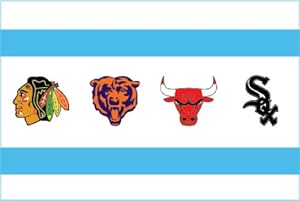
|
http://www.usnews.com/news/articles/2013/10/28/brand-and-age-of-football-helmets-make-no-difference-in-concussions
Brand and Age of Football Helmets Make No Difference in Concussions
New research shows concussions are just as frequent and severe across different brands of helmets
By ALLIE BIDWELL
October 28, 2013
Although many sports equipment manufacturers market their products by claiming they can reduce the risk of sports-related brain injuries, neither the brand nor the age of a helmet is associated with fewer concussions in young athletes, according to new research presented at the American Academy of Pediatrics National Conference and Exhibition on Monday.
Researchers from the University of Wisconsin at Madison tested various mouth guard brands, as well as new and older football helmets worn by 1,332 high school football players from 36 different schools during the 2012 football season. The athletes completed a pre-season questionnaire on their past injuries, and their athletic trainers reported the number and severity of sports-related concussions throughout the season.
The researchers found that there was no significant difference in the frequency of concussions among players, regardless of the brand or age of the helmets they wore. Additionally, the severity of the concussions, based on the number of days the athletes lost from play, was no different for players wearing different brands, including Riddell, Schutt and Xenith.
"Despite what manufacturers might claim, newer and more expensive equipment may not reduce concussion risk," said lead co-investigator Margaret Alison Brooks, in a statement. "So is it worth the significant extra cost to families and schools?"
Each year, emergency departments in the United States treat more than 173,000 sports-and recreation-related traumatic brain injuries, including concussions, among children and adolescents, according to the Centers for Disease Control and Prevention.
But males, particularly those between the ages of 10 and 19 who play football, are far more likely to experience sports-related traumatic brain injuries. Nearly three-quarters of those emergency department visits were among males, and most often occurred while playing football or bicycling, according to the CDC. Additionally, about 40,000 sports-related concussions occur in American high schools each year, according to Brooks' research.
Recent research from the Cincinnati Children's Hospital Medical Center also found the number of emergency room visits related to sports-related brain injuries appears to be on the rise; the number of children making trips to the emergency room for such injuries spiked by 92 percent between 2002 and 2011.
But that doesn't necessarily mean more children are getting injured. Holly Hanson, an emergency medicine fellow at Cincinnati Children's said the increase in numbers might be coming from a greater awareness for the signs and symptoms of brain injuries among parents, school athletic personnel and physicians.
Still, Brooks said it's unclear if helmets will ever be able to completely protect athletes from concussions and brain injuries, although they have helped prevent skull fractures and scalp lacerations.
But "because the brain is floating freely inside the skull, I think most experts doubt whether it is possible to ever develop a helmet design that can prevent concussion," Brooks said.
Gregory Myer, director of research for the Division of Sports Medicine at Cincinnati Children's, says it's not easy to protect the brain from the outside, especially when you're adding mass to an athlete's head.
"That's why we've seen no reduction in the number of concussions from the development of any helmet," Myers says.
While there are ways to prevent the occurrence and severity of concussions, such as increasing peripheral vision to avoid or prepare for collisions and improving neck strength, Myers says it's possible that helmets can actually increase the risk of concussions.
That's because wearing one removes some sense of fear from the athlete.
"They're more likely to use their head as a weapon," Myers says. "If you took that away, athletes would never lead with their head."
|
 Printer-friendly copy
Printer-friendly copy  Email this topic to a friend
Email this topic to a friend Okay Sports
Okay Sports
 topic #2253615
topic #2253615